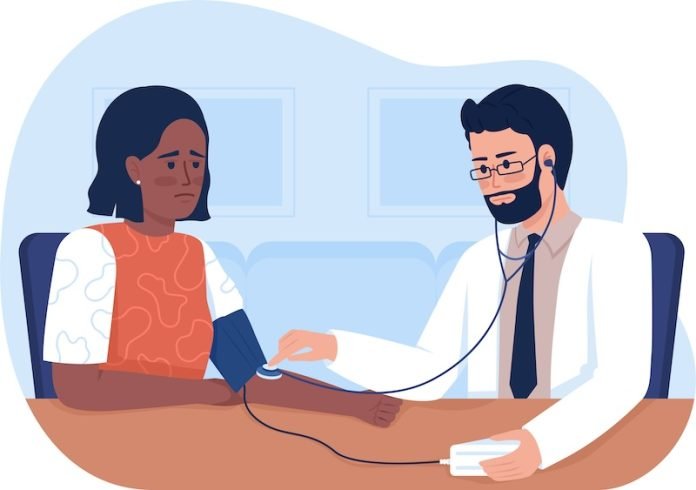
High blood pressure, or hypertension, is a common health issue that affects millions of people globally.
It’s well known for its role in causing heart disease and stroke, but its impact on eye health is often overlooked.
Understanding how high blood pressure can affect your eyes is crucial because early detection and management can help prevent lasting damage.
High blood pressure can damage the delicate vessels that supply blood to your eyes, leading to several serious eye conditions. One of the main areas affected is the retina, the part of the eye responsible for converting light into signals that go to the brain.
The condition linked to this damage is known as hypertensive retinopathy. Research has shown that prolonged, uncontrolled high blood pressure can lead to narrowing of the blood vessels in the retina, bleeding in the eye, blurred vision, and complete loss of vision.
A study published in the British Journal of Ophthalmology found that hypertensive retinopathy is associated with a higher risk of chronic heart disease, highlighting the interconnectedness of eye health and overall cardiovascular health.
Another eye condition influenced by high blood pressure is choroidopathy, which involves fluid build-up under the retina. This can distort vision or sometimes lead to scarring that impairs the visual field.
People with severe or long-standing hypertension are more susceptible to this problem.
The condition was the subject of a 2017 study in the American Journal of Ophthalmology, which detailed how fluid build-up in the choroid layer could lead to complications like distorted vision, emphasizing the need for blood pressure control to prevent such outcomes.
Glaucoma is another significant concern. It’s a group of eye conditions that damage the optic nerve, the vital link between the eye and the brain.
High blood pressure can increase the risk of developing glaucoma, as elevated blood pressure can lead to increased pressure inside the eye, ultimately harming the optic nerve.
A comprehensive analysis in the Journal of Glaucoma suggests that managing blood pressure levels can be an essential part of glaucoma prevention and treatment strategies.
What can be done to mitigate these risks? First and foremost, managing your blood pressure is key. Regular check-ups with your doctor to monitor and control blood pressure can significantly reduce the risk of eye damage.
Diet and lifestyle adjustments, such as reducing salt intake, avoiding excessive alcohol consumption, maintaining a healthy weight, and regular physical activity, are highly recommended.
Routine eye exams are also vital because eye specialists can detect early signs of damage related to high blood pressure. These examinations allow for early interventions that can prevent serious damage.
Optical coherence tomography (OCT), a modern imaging technique, has become an invaluable tool in diagnosing and monitoring changes in the retina’s blood vessels, as highlighted by research in the journal Ophthalmology.
Moreover, educating individuals about the symptoms of eye problems related to high blood pressure is crucial. Symptoms might include double vision, dimming, or vision loss. If you experience any of these symptoms, it’s important to seek immediate medical attention.
In conclusion, high blood pressure can have a significant impact on eye health, potentially leading to conditions that may impair vision.
Preventative measures like controlling blood pressure, regular eye checks, and immediate response to symptoms are vital steps in protecting your eyesight. Awareness and proactive management are your best tools for maintaining good eye health in the face of hypertension.
If you care about high blood pressure, please read studies about potatoes and high blood pressure, and top 10 choices for a blood pressure-friendly diet
For more information about high blood pressure, please see recent studies about impact of vitamins on high blood pressure you need to know, and the powerful link between high blood pressure and a potassium-rich diet.
Copyright © 2024 Knowridge Science Report. All rights reserved.



